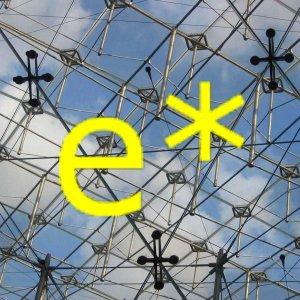e*

Counterfactual computational vehicles of consciousness
Given April 7th 2006 in Tucson at Toward a Science of Consciousness 2006, this is really two talks in one. My attendance at the conference was made possible in part by grant OCG43170 from the British Academy; I am grateful for their support. Abstract: In a recent paper (Bishop 2002), Bishop argues against computational explanations of consciousness by confronting them with a dilemma. On a non-causal or weakly causal construal of computation, familiar arguments from Putnam and Searle reveal computation to be too observer-relative to be able to underwrite any law-involving explanation of consciousness. On a (much more plausible) strongly causal notion of computation (Chalmers 1994; Chalmers 1996; Chrisley 1994), computational explanations must advert to non-actual, counterfactual states and state transitions. Working this fact into versions of Fading Qualia and Suddenly Disappearing Qualia arguments, Bishop concludes that strongly causal computationalism cannot be physicalist, in that it maintains that two states may differ only their non-physical (i.e. counterfactual) properties and yet be phenomenally distinct. I rebut this argument by embracing the second horn, and denying that appeal to non-actual or counterfactual properties is at odds with physicalism; indeed, it is the lifeblood of normal, physical, causal explanation. I further cast doubt on the argument by showing that it is too strong; if it is correct, computational states could not explain anything at all, not even computational phenomena, let alone conscious experience. I show how computational states that differ in their counterfactual properties must, contra Bishop's characterization, differ with respect to some of their actual properties. However, I note that inter-dependencies between current experience and computational state may only be explicable by reference to explicit, counterfactual states rather than the occurrent physical states which realize those dispositional properties. This is shown to cohere with at least one understanding (Chrisley 2004) of the sensorimotor contingency theory of perceptual experience (O'Regan and Noe 2000), in which expectation is understood as a disposition to produce a computational state corresponding to the sensation one would have if one were to perform a particular action. I conclude by sketching some implications for the search for correlates of experience. The considerations arising out of Bishop's argument show that if computationalism is true, then the search for correlates will fail if it only considers occurrent non-dispositionally construed physical states at a time to be the possible correlates of the experience being had at that time. References: Bishop, J.M. (2002) "Dancing With Pixies", in Preston, J. & Bishop, J.M., (eds), Views into the Chinese Room, pp. 360-379, Oxford University Press. Chalmers, D.J. (1994) "On Implementing a Computation", Minds and Machines, vol.4, pp.391-402. Chalmers, D. (1996) "Does a Rock Implement Every Finite-State Automaton?", Synthese, vol.108, pp.309-333. Chrisley, R. (1994) "Why Everything Doesn't Realize Every Computation," Minds and Machines 4:4, pp 403-420. Chrisley (2004) "Perceptual Experience as the Mastery of Sensorimotor Representational Contingencies", abstract in Proceedings of Towards a Science of Consciousness 2004, p 119. O'Regan, K., and Noe, A. (2001) "A Sensorimotor Account of Vision and Visual Consciousness", Behavioral And Brain Sciences 24(5). Media: PodSlides: iPod-ready video (.mp4; 31.7 MB; 19 min 41 sec) audio (.mp3; 9.2 MB; 19 min 49 sec) Powerpoint file (.ppt; 1.7 MB)






 Visit Podcast Website
Visit Podcast Website RSS Podcast Feed
RSS Podcast Feed Subscribe
Subscribe
 Add to MyCast
Add to MyCast